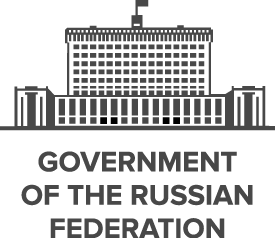Founded in the 12th century, the Principality of Muscovy was able to emerge from over 200 years of Mongol domination (13th-15th centuries) and to gradually conquer and absorb surrounding principalities. In the early 17th century, a new ROMANOV Dynasty continued this policy of expansion across Siberia to the Pacific. Under PETER I (ruled 1682-1725), hegemony was extended to the Baltic Sea and the country was renamed the Russian Empire. During the 19th century, more territorial acquisitions were made in Europe and Asia. Defeat in the Russo-Japanese War of 1904-05 contributed to the Revolution of 1905, which resulted in the formation of a parliament and other reforms. Repeated devastating defeats of the Russian army in World War I led to widespread rioting in the major cities of the Russian Empire and to the overthrow in 1917 of the imperial household. The communists under Vladimir LENIN seized power soon after and formed the USSR. The brutal rule of Iosif STALIN (1928-53) strengthened communist rule and Russian dominance of the Soviet Union at a cost of tens of millions of lives. After defeating Germany in World War II as part of an alliance with the US (1939-1945), the USSR expanded its territory and influence in Eastern Europe and emerged as a global power. The USSR was the principal adversary of the US during the Cold War (1947-1991). The Soviet economy and society stagnated in the decades following Stalin’s rule, until General Secretary Mikhail GORBACHEV (1985-91) introduced glasnost (openness) and perestroika (restructuring) in an attempt to modernize communism, but his initiatives inadvertently released forces that by December 1991 splintered the USSR into Russia and 14 other independent republics.
Following economic and political turmoil during President Boris YELTSIN's term (1991-99), Russia shifted toward a centralized authoritarian state under the leadership of President Vladimir PUTIN (2000-2008, 2012-present) in which the regime seeks to legitimize its rule through managed elections, populist appeals, a foreign policy focused on enhancing the country's geopolitical influence, and commodity-based economic growth. Russia faces a largely subdued rebel movement in Chechnya and some other surrounding regions, although violence still occurs throughout the North Caucasus.
Russia is a semi-presidential federation.
Members:
Resources
Displaying 591 - 595 of 1046Regional Law No. 668-5-ZKO “On allotment of plots of land free of charge in ownership to some categories of citizens”.
This Regional Law regulates the issues of allotment free of charge of public land plots pertaining to the regional or municipal public land stock in ownership to some categories of citizens. The following categories of citizens shall have the right of allotment free of charge of public land in ownership: (a) multi-child families (with three and more dependent children); (b) single-parent families; (c) disabled persons. Plots of land shall be granted within the boundaries of municipal district of permanent residence.
Regional Law No. 36-KZ “On regulation of some issues of land relations”.
This Regional Law regulates relations dealing with land tenure, protection and conservation of land, establishing plenary powers of regional state bodies in this sphere. It establishes minimum (equal to minimum land area authorized for construction in accordance with land-use planning provisions) and maximum (up to 1,500 square meters) public and municipal land areas for plots of land allotted to families for housing construction. It envisages allotment of public agricultural land to citizens with three and more dependent children for family farming and/or subsistence farming.
Regional Law No. 11-OZ “On village chiefs”.
This Regional Law establishes legal grounds for the operation of village chiefs, considered head of territorial social self-governing rural settlement elected by the local population, as a form of public participation in local government in rural areas. Village chief represents the interests of the territorial population in their interaction with local government. The scope of election of village chief shall be realization of decisions adopted by local government. Public official cannot be elected village chief.
Regional Law No. 530 “On village chiefs”.
This Regional Law establishes legal grounds for the operation of village chiefs as a form of public participation in local government in rural areas. Village chief represents the interests of the territorial population in their interaction with local government. The scope of election of village chief shall be realization of decisions adopted by local government. Public official cannot be elected village chief.
Regional Law No. 1158-ZZK “On village chiefs”.
This Regional Law establishes legal grounds for the operation of village chiefs as a form of public participation in local government. The scope of election of village chief shall be realization of decisions adopted by local government. Public official cannot be elected village chief.


